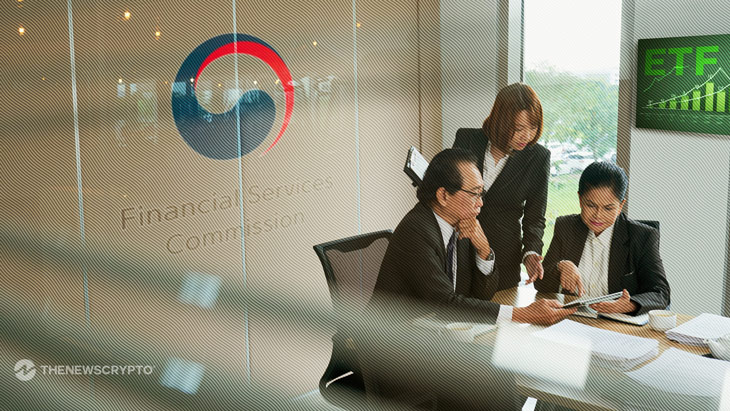
 Market News
Market News- South Korea’s Virtual Assets Committee to review spot crypto ETFs and accounts.
- Stricter regulations for crypto businesses anticipated under Phase 2 legislation.
South Korea’s financial regulator is moving closer to approving spot crypto exchange-traded funds (ETFs) and corporate crypto accounts, with discussions set to accelerate following the establishment of a new Virtual Assets Committee. The committee, which was officially announced on October 13, is expected to play a key role in shaping the country’s evolving cryptocurrency regulations. It will be chaired by the Financial Services Commission’s (FSC) vice chairman. And include representatives from government ministries and private-sector experts.
The announcement follows a News1 Korea report on October 10 that revealed the committee would review proposals for approving Bitcoin and Ethereum spot ETFs. This is along with allowing companies to hold cryptocurrency accounts. This move comes amid growing pressure from industry leaders. And lawmakers who are urging the regulator to align with global crypto trends.
ETF Market Frenzy
While South Korea has been cautious in its approach, major markets like the United States and Hong Kong have already approved spot ETFs. In the U.S., approving Bitcoin futures ETFs sparked massive interest, with ProShares’ Bitcoin Strategy ETF trading $1 billion in volume on its first day in 2021. The race for a spot Bitcoin ETF continues in the U.S., with institutions like BlackRock and Fidelity submitting applications to the Securities and Exchange Commission (SEC).
Moreover, the recent listing of the XRP Ledger ETF by Switzerland’s SIX exchange has added to the momentum for crypto ETFs globally. The listing represents growing investor interest in assets beyond Bitcoin and Ethereum. It continues as XRP continues to gain traction following Ripple’s partial legal victory in the U.S.
South Korea’s new Virtual Assets Committee will also explore “Phase 2 legislation”. It will introduce stricter regulatory measures for crypto businesses. It includes more stringent rules for issuing and listing digital assets. This follows the enactment of the Virtual Asset User Protection Act in July. It aimed at enhancing investor safeguards while fostering market growth.
Highlighted News Of The Day
BNB Price Remains Stable Despite Dramatic Decline in Network Fees
Source: https://thenewscrypto.com/south-korea-virtual-assets-committee-set-to-review-crypto-etfs/